Episodes
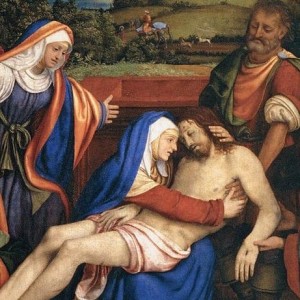
Tuesday May 07, 2019
Questions of Life and Death with Dr. Kent Lasnoski
Tuesday May 07, 2019
Tuesday May 07, 2019
In the old cowboy movie, "The Man Who Shot Liberty Valance," once Valance is on the ground with a bullet in him, someone calls for the doctor. The doctor turns the body face up with his boot, looks at the corpse, and says, "Dead." One hundred or more years ago, life and death were relatively simple, but they're not any more.
While there are good reasons to rejoice in modern medical technique and technology, questions of life and death have grow in number and complexity.
Dr. Kent Lasnoski ended his moral theology course with Wyoming Catholic College seniors by moving from the philosophical and the theological to the conundrums force on us by medical and biotechnical advancements. Dr. Lasnoski is our guest on this week's After Dinner Scholar.
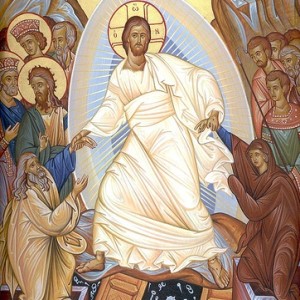
Tuesday Apr 23, 2019
St. Thomas Aquinas on the Resurrection of Jesus with Dr. Jeremy Holmes
Tuesday Apr 23, 2019
Tuesday Apr 23, 2019
The Catechism of the Catholic Church declares, “Easter is not simply one feast among others, but the ‘"Feast of feasts,’ the ‘Solemnity of solemnities,’ just as the Eucharist is the ‘Sacrament of sacraments’ (the Great Sacrament). St. Athanasius calls Easter ‘the Great Sunday’ and the Eastern Churches call Holy Week ‘the Great Week.’ The mystery of the Resurrection, in which Christ crushed death, permeates with its powerful energy our old time, until all is subjected to him.”
In his Compendium Theologiae, St. Thomas Aquinas reflected on the meaning of the resurrection. This Easter Week, Dr. Jeremy Holmes explains how Thomas understood the resurrection of Christ and its relationship to our resurrection.
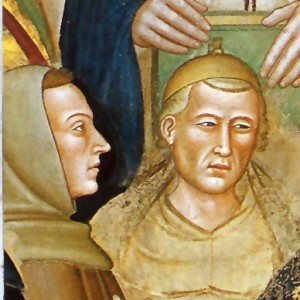
Tuesday Mar 19, 2019
Tuesday Mar 19, 2019
There are dozens of would-be explanations for the polarization we as a culture and body politic experience today. One plausible explanation we rarely hear about is nominalism as over against realism.
Do the words we use—“cat,” “canyon,” “mountain,” and most important “man”—describe universals or merely particulars? Can we meaningfully talk about human nature and what it means to be one of us? Is human nature something real that is outside of our thoughts or is it merely an internal, subjective construct we apply to many particulars that seem somewhat alike?
While these seem like rather abstract and academic question, Wyoming Catholic College senior Jack Thrippleton argued in his senior thesis and oration, “Realism and Nominalism cannot truly argue against each other, for they do not share enough premises.”
Jack is our guest this week on The After Dinner Scholar.
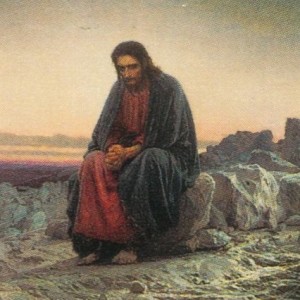
Tuesday Mar 05, 2019
Lent: A Time of Sacrifice, Growth, and Joy with Fr. Paul Ward
Tuesday Mar 05, 2019
Tuesday Mar 05, 2019
“Lent,” wrote New Testament scholar Dr. N. T. Wright, “is a time for discipline, for confession, for honesty, not because God is mean or fault-finding or finger-pointing but because he wants us to know the joy of being cleaned out, ready for all the good things he now has in store.”
And even if we already knew that, well… discipline and sacrifice come hard to most of us. As Pope St. John Paul II noted, “Our age, regrettably, is particularly susceptible to the temptation toward selfishness which always lurks within the human heart. …The spirit of the world affects our inner propensity to give ourselves unselfishly to others and drives us to satisfy our own particular interests.”
Lent is the needed antidote and our Wyoming Catholic College community takes Lent very seriously. Guiding us—students, faculty, and staff—through Lent is our college chaplain, Fr. Paul Ward. Fr. Ward is our guest this week on The After Dinner Scholar.
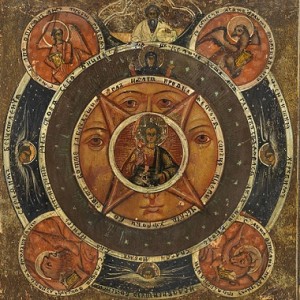
Tuesday Feb 26, 2019
The Being, the Goodness, and the Providence of God with Dr. Michael Bolin
Tuesday Feb 26, 2019
Tuesday Feb 26, 2019
“Are not two sparrows sold for a penny?” told Jesus the fearful, “And not one of them will fall to the ground without your Father’s will. But even the hairs of your head are all numbered.” (Matthew 10:29-30)
God governs the vast reaches of space, the hosts of angels, the rise and fall of nations. And yet, little birds don’t fall to the ground dead “without your Father’s will.” And as your hair falls out, God keeps track of how many hairs remain.
This is a great mystery. It is the doctrine of God’s providence. “All things,” wrote St. Thomas Aquinas in his Compendium Theologiae, “are ruled by divine providence. “All things”? That’s quite an extravagant claim and, in our world of woe, it’s also quite a controversial claim.
Theologian, Dr. Michael Bolin provides some insights on this mystery on this edition of The After Dinner Scholar.
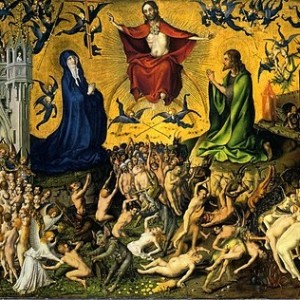
Tuesday Feb 19, 2019
Learning and the Dies Irae with Prof. Kyle Washut
Tuesday Feb 19, 2019
Tuesday Feb 19, 2019
The Dies Irae, a hymn from the 12th century, speaks about the second coming of Christ and the Judgment Day. In addition to that, the Latin text just happens correspond with the Latin Wyoming Catholic College sophomores are learning right now.
It is, in fact, a powerful and challenging combination of poetry, theology, spirituality, and Latin grammar.
Noticing all that, Prof. Kyle Washut and Prof. Eugene Hamilton integrated a bit of second year Latin with second year Trivium. Prof. Washut is our guest this week on The After Dinner Scholar
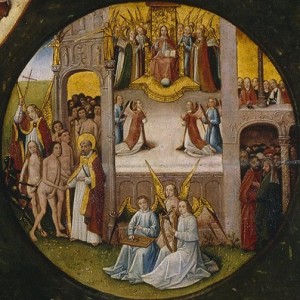
Tuesday Dec 04, 2018
Heaven, Hell, and Purgatory in Thomas Aquinas with Dr. Kent Lasnoski
Tuesday Dec 04, 2018
Tuesday Dec 04, 2018
Each Sunday at Mass we repeat the same words: “ I look forward to the resurrection of the dead and the life of the world to come.” We also remind ourselves that Jesus is coming again, most of us would rather not think too deeply about death and with it about Hell, Purgatory, and Heaven. But how often do we take the time to consider what exactly that means?
St. Thomas Aquinas wrote his Compendium Theologiea during the last two years of his life, completing it in 1273. Unlike his Summa Theologiae, theology for theologians, Thomas wrote the Compendium to help laypeople to love God more by coming to know Him better. That is, it’s theology for everyone seeking to know, love, and serve God through faith in Jesus Christ.
During the waning days of this fall semester, Wyoming Catholic College juniors under Dr. Kent Lasnoski’s tutelage have been considering what St. Thomas had to say about judgment, Hell, Purgatory, and Heaven in the Compendium.
Dr. Lasnoski is our guest this week on The After Dinner Scholar.
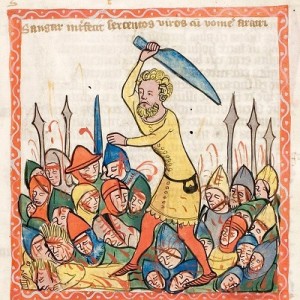
Tuesday Nov 13, 2018
Tuesday Nov 13, 2018
“And all that generation also were gathered to their fathers; and there arose another generation after them, who did not know the Lord or the work which he had done for Israel.” (Judges 2:10)
When Israel entered the Promised Land, Joshua was the clear commander and leader of the people. Then he and his generation died. It was a generation that, as a friend used to say, forgot to make disciples. The memory of the Exodus and of the Lord God faded and, well, disaster was the result.
Enemies came to oppress Israel. In their pain they called out to the Lord who, because he is faithful, heard and answered by sending a judge to deliver them. Then, when the judge died, the cycle began all over again.
Dr. Jeremy Holmes and I have been team teaching freshman theology, a course that surveys the history of Israel in the Old Testament. Our classes that reflected on the judges and the subsequent anointing of a king over Israel got us thinking. Dr. Holmes is our guest on The After Dinner Scholar.
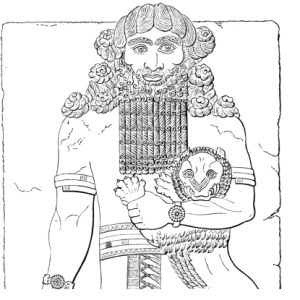
Tuesday Oct 09, 2018
Gods, Monsters, and Heroes: The Epic of Gilgamesh with Prof. Kyle Washut
Tuesday Oct 09, 2018
Tuesday Oct 09, 2018
“When the gods created Gilgamesh,” the ancient text says, “they gave him a perfect body. Shamash the glorious sun [god] endowed him with beauty, Adad the god of the storm endowed him with courage, the great gods made his beauty perfect, surpassing all others, terrifying like a great wild bull. Two thirds they made him god and one third man.”
Every year freshmen at Wyoming Catholic College struggle to find their bearings in the midst of The Epic of Gilgamesh. The epic was composed in Babylon in the mid- to late-second millennium BC. It was something of a founding myth for the Babylonian kings and the parallels between Gilgamesh and the Bible and Gilgamesh and Homer are, to say the least, intriguing.
Professor Kyle Washut has just finished teaching The Epic of Gilgamesh and is anxiously awaiting student papers reflecting on the tale. Prof. Washut is our guest this week on The After Dinner Scholar.
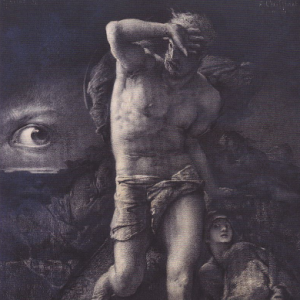
Tuesday Sep 18, 2018
Veritatis Splendor and Conscience with Dr. Kent Lasnoski
Tuesday Sep 18, 2018
Tuesday Sep 18, 2018
Last week theologian Dr. Jeremy Holmes gave us an introduction to St. John Paul II’s 1993 encyclical, Veritatis Splendor, The Splendor of Truth.
St. John Paul II wrote the encyclical in response to trends in moral theology that for the most part denied that morality can be universal, objective, and permanent.
He critiqued any doctrines that would “grant to individuals or social groups the right to determine what is good or evil.”
Yet we make judgments about good and evil every day and the source of those judgments is our consciences.
Dr. Kent Lasnoski teaches moral theology at Wyoming Catholic College and has for many years been a student of St. John Paul II and his ethical writings. In this edition of The After Dinner Scholar, he explains the nature of conscience in Pope St. John Paul's writings.

